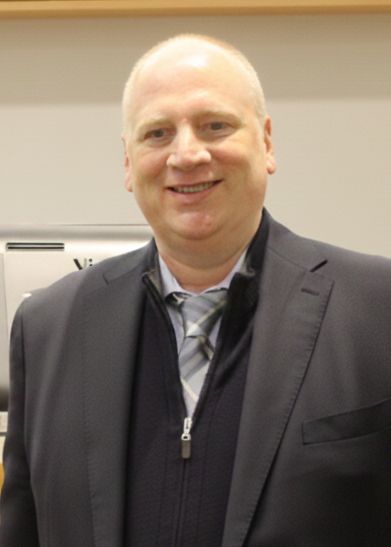
For several decades, the National Institute on Aging (NIA) has invested in curating a treasure trove of data from dementia and cognitive aging studies spanning every major continent. This large, diverse pool of studies can help researchers make broad new discoveries about dementia, as well as many nuanced contexts to mental aging.
But making cross-national comparisons is notoriously difficult: Researchers must be able to reconcile linguistic, cultural, and social factors that vary from study to study. It requires advanced statistical skills and the ability to interpret findings correctly.
That’s why, this fall, the NIA awarded a $1.9 million, five-year R25 grant to Richard Jones, Sc.D., a professor of psychiatry and human behavior and of neurology, to develop and implement a program to train researchers from around the world how to use the global data. The program – designed with fellow principal investigator Lindsay Kobayashi, Ph.D., associate professor of epidemiology at the University of Michigan – will consist of annual in-person courses, an online archive of learning materials, and a remote community of practice. The annual courses will be held at rotating locations in the United States and Europe, with the first tentatively scheduled for May 2026 at the University of Michigan.
“Comparing results cross-nationally is a really hard thing to do,” Jones said. “But the training will provide investigators with the cognitive and statistical tools they need to think about the data and analyze it in an ethical and effective way.”
Tantalizing and Tricky Data
The NIA-collected data comes from a global network of dementia-related studies: The International Health and Retirement Study (HRS) and a sub-set of studies called the Harmonized Cognitive Assessment Protocol (HCAP). Since 2016, HCAP has incorporated data from seven countries and will soon include data from nearly a dozen more.
Yet HCAP is a largely untapped resource. Many Alzheimer’s and dementia researchers remain unfamiliar with its potential and aren’t trained to account for study differences.
The trickiness of those differences become apparent in just one widely used cognitive test, the Mini Mental State Examination. In English, the test asks participants to say “No ifs, ands, or buts,” a phrase that’s difficult for people with aphasia. But the reason for that difficulty is unclear. So in other languages, should the translated phrase follow the literal meaning or the sound pattern of the English? And what should researchers make of the ensuing data?
Untangling complicated scenarios like this requires the kind of statistics commonly used in educational and psychological testing – and completely foreign to most health researchers.
“People can only learn the things they’re taught,” Jones said. “Unfortunately, academic fields can be siloed. There’s not always a lot of cross-pollination.”
All-Hands Expertise
Jones is unique in that his expertise bridges disparate fields. In his doctoral training as an epidemiologist at the Johns Hopkins Bloomberg School of Public Health, he happened to develop a working relationship with an education researcher at UCLA.
“It's really serendipity that I even learned about these methods,” Jones said.
For the past 20 years, he has been equipping health researchers with these specialized statistical tools via summer short courses. He also directs the Quantitative Sciences Program, a research core that provides methodological and statistical support to Brown researchers in psychiatry and human behavior and in neurology.
As both HRS and HCAP co-investigators, Jones and Kobayashi are some of the very few researchers who have been able to tap the potential of the global network data. So far, they’ve used the data to explore how cognitive functioning is affected by social safety nets, educational experiences (even in very early childhood), and gender inequities in education.
They are creating the new NIA-backed training program with the help of a multidisciplinary team of researchers from across the United States, including Jones’ Brown colleague Zachary Kunicki, Ph.D., assistant professor of psychiatry and human behavior. The team brings expertise from cognitive aging, psychometrics, epidemiology, neuropsychology, and social science.
Worldwide Data for Worldwide Researchers
The training program is designed to be broadly accessible to researchers from across the world. This is particularly important, since low- and middle-income countries are projected to bear an estimated 75 percent of global Alzheimer’s and dementia cases by 2050.
The program’s annual in-person coursework will focus on developing appropriate research questions for the HRS/HCAP data and using advanced statistical methods to make cross-national comparisons. The courses will be held each summer in different locations: The University of Michigan, Brown University, University College London, and the the SHARE Berlin Institute in Germany. Financial support for travel and accommodations will be available to researchers from low- and middle-income countries. The courses will also be adapted as condensed pre-conference workshops and remote learning modules to reach more participants.
In addition to the courses, the program will also create a free online repository of learning materials – such as readings, lecture recordings, analytic code, and exercises – and a virtual community of practice on the social messaging app Discord. These resources will be available to anyone across the world.
Jones envisions that Brown faculty and postdoctoral trainees will also benefit from the training program, even if they don’t study cognitive aging or global health.
“We just happen to be focused on international studies of cognitive aging, but the applicability is actually quite broad,” Jones said. “Making fair comparisons among people tested in different countries also applies to people with different backgrounds within the U.S.”